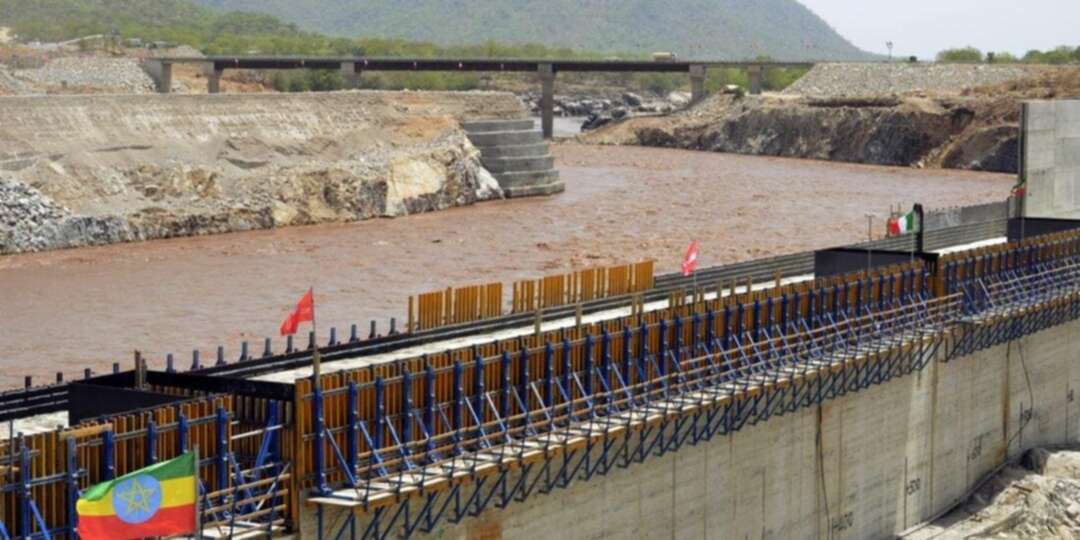-
Nile water level stable despite Ethiopia's second filling of Renaissance Dam

The xinhuanet reported Sudanese official on Sunday said that no drop in the water level of the Blue Nile has been detected despite Ethiopia's start of the second filling of the Grand Ethiopian Renaissance Dam (GERD).
Hamid Mohamed Ali director of Sudan's Al-Rusaires Dam, said in a statement "Since April, Al-Daim station on the border with Ethiopia has not monitored any drop in the daily level of the water coming from the Ethiopian Plateau to Sudan."
He noted "Although Ethiopia started the second filling of the GERD, yet the daily water amounts are stable."
But Ali stressed that, despite Ethiopia's start of the second of filling of the GERD, a legal and binding deal should still be signed regarding filling and operating of the dam.
The Al-Rusaires Dam on the Blue Nile, which lies some 100 km from the GERD, was established in 1966 with a storage capacity of 3.35 billion cubic meters.
Sudan, Egypt and Ethiopia have been in talks for years, under the umbrella of the African Union, over the technical and legal issues related to the filling and operation of the GERD.
Sudan proposed a mediation quartet of the United Nations, the European Union, the United States and the African Union on solving the GERD dispute. Ethiopia, however, has rejected this proposal.
In February, Ethiopia said it would carry on with the second-phase 13.5-billion-cubic-meter filling of the GERD in June. The volume of the first-phase filling last year was 4.9 billion cubic meters.
Ethiopia, which started building the GERD in 2011, expects to produce more than 6,000 megawatts of electricity from the dam project, while Egypt and Sudan, downstream Nile Basin countries that rely on the Nile river for its freshwater needs, are concerned that the GERD will affect their shares of the water resources.
levant
Source: xinhuanet
You May Also Like
Popular Posts
Caricature
BENEFIT Sponsors BuildHer...
- April 23, 2025
BENEFIT, the Kingdom’s innovator and leading company in Fintech and electronic financial transactions service, has sponsored the BuildHer CityHack 2025 Hackathon, a two-day event spearheaded by the College of Engineering and Technology at the Royal University for Women (RUW).
Aimed at secondary school students, the event brought together a distinguished group of academic professionals and technology experts to mentor and inspire young participants.
More than 100 high school students from across the Kingdom of Bahrain took part in the hackathon, which featured an intensive programme of training workshops and hands-on sessions. These activities were tailored to enhance participants’ critical thinking, collaborative problem-solving, and team-building capabilities, while also encouraging the development of practical and sustainable solutions to contemporary challenges using modern technological tools.
BENEFIT’s Chief Executive Mr. Abdulwahed AlJanahi, commented: “Our support for this educational hackathon reflects our long-term strategic vision to nurture the talents of emerging national youth and empower the next generation of accomplished female leaders in technology. By fostering creativity and innovation, we aim to contribute meaningfully to Bahrain’s comprehensive development goals and align with the aspirations outlined in the Kingdom’s Vision 2030—an ambition in which BENEFIT plays a central role.”
Professor Riyadh Yousif Hamzah, President of the Royal University for Women, commented: “This initiative reflects our commitment to advancing women in STEM fields. We're cultivating a generation of creative, solution-driven female leaders who will drive national development. Our partnership with BENEFIT exemplifies the powerful synergy between academia and private sector in supporting educational innovation.”
Hanan Abdulla Hasan, Senior Manager, PR & Communication at BENEFIT, said: “We are honoured to collaborate with RUW in supporting this remarkable technology-focused event. It highlights our commitment to social responsibility, and our ongoing efforts to enhance the digital and innovation capabilities of young Bahraini women and foster their ability to harness technological tools in the service of a smarter, more sustainable future.”
For his part, Dr. Humam ElAgha, Acting Dean of the College of Engineering and Technology at the University, said: “BuildHer CityHack 2025 embodies our hands-on approach to education. By tackling real-world problems through creative thinking and sustainable solutions, we're preparing women to thrive in the knowledge economy – a cornerstone of the University's vision.”
opinion
Report
ads
Newsletter
Subscribe to our mailing list to get the new updates!






















